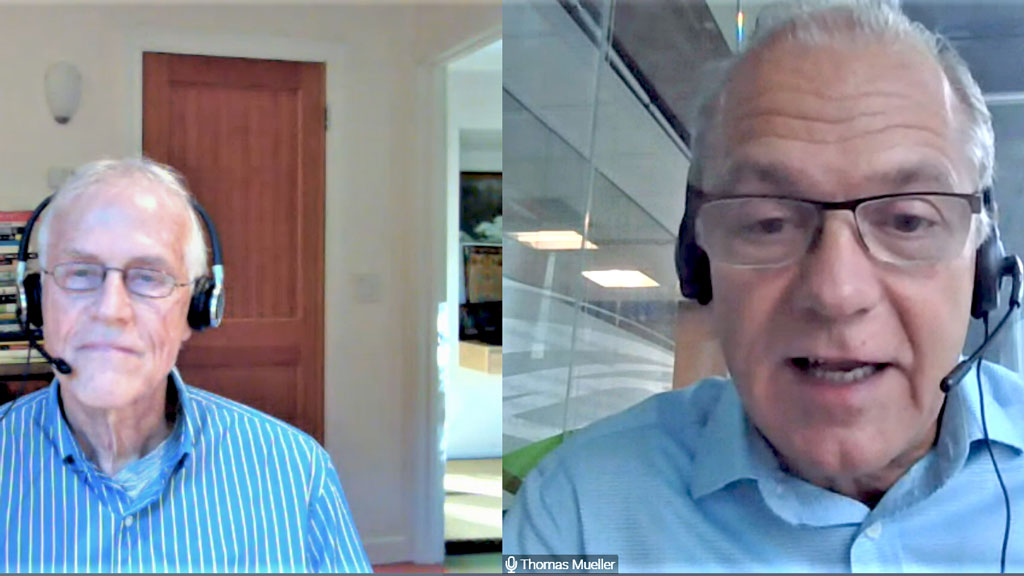Canada’s green building sector needs to adopt a new, more inclusive vocabulary in order to build a greater consensus for climate action, delegates tuned in to the Canada Green Building Council’s online Building Lasting Change 2020 conference were told recently.
Social entrepreneur and author Paul Hawken, the keynote speaker for a noon-hour address at the Sept. 22 event, argued that most of the world is disengaged from the climate crisis. He said using the language of fear and negative terms such as “slashing emissions,” “combatting” and “fighting” alienates the vast majority of citizens who will be affected by climate change but are not currently engaged.
Instead, the language and methodologies of “regeneration” must be used.
“What we are talking about in Canada, we need to convey to politicians and the public as a whole that regenerated cities, environments, countrysides and forests are actually…a path forward that creates a tremendous amount of innovation and creativity,” said the California-based activist.
“Regeneration is about how we create, how we can have more pure water, healthy food, farmland and healthy children,” said Hawken.
The environmental movement too often finds itself addressing politicians as it strives for change — and typically only environment ministers, not other decision-makers around a cabinet table who have other social and economic responsibilities, Hawken said.
That leaves out renters, small business operators, students, teachers, farmers, foresters, city councillors and others, he said. Instead, advocates need to start speaking of healing the Earth, addressing those constituents about restoring, renewing, rejuvenating, connecting and showing respect.
“There are so many levels of agency in the world that we are missing,” he said.
What is the “value proposition” to encourage better living conditions?
Hawken was interviewed by Thomas Mueller, president and CEO of the Canada Green Building Council. Mueller said discussions of buildings tend to be very narrow among green builders, with environmental and economic performance the main focuses.
But what about the people who live and work in these buildings, he asked. What is the “value proposition” that can rally them to more forcefully advocate for better living conditions?
“All of these issues are starting to come into focus,” said Mueller.
“From a green building perspective, regeneration has been around for about the last 10 years plus, we have been thinking about it, but what we need to do, we need to think bigger and more inclusively in terms of how we are building things.
“It is not just about carbon and energy efficiency. It is about everything. We have an opportunity in terms of buildings, neighbourhoods, cities, infrastructure, we have an opportunity to think about this differently, in a bigger way, to move toward regeneration and letting the planet regenerate.”
“The default mode of nature is regeneration”
Regeneration is more than a holistic philosophy, Hawken said. It is nature’s way of reclaiming natural systems if given an opportunity. He discussed a project in Illinois where a former wetland was allowed to return to a natural state with fish stocked into a pond.
Before long, 915 new species of plants and animals had also taken up root including a rare breed of pelican.
“The default mode of nature is regeneration,” Hawken said.
Eliminating the use of carbon fuels is absolutely essential to saving the planet, Hawken said, but it’s not enough on its own, nor is seeking efficiencies. Rather, everyone needs to step back and adopt some of the broader solutions that have already been proposed.
“If we could snap our fingers and decarbonate all energy sources overnight, we would still be heading off the cliff,” he commented.
That very day, Hawken noted, Walmart was announcing in a major policy initiative that it would be committing to the land regeneration movement — policy developed by Hawken himself as a consultant.
“If we don’t commit to the environment and everyone doesn’t work together, we are not going to solve the problem,” he said. “We need everyone on board.”
Follow the author on Twitter @DonWall_DCN.











Recent Comments
comments for this post are closed